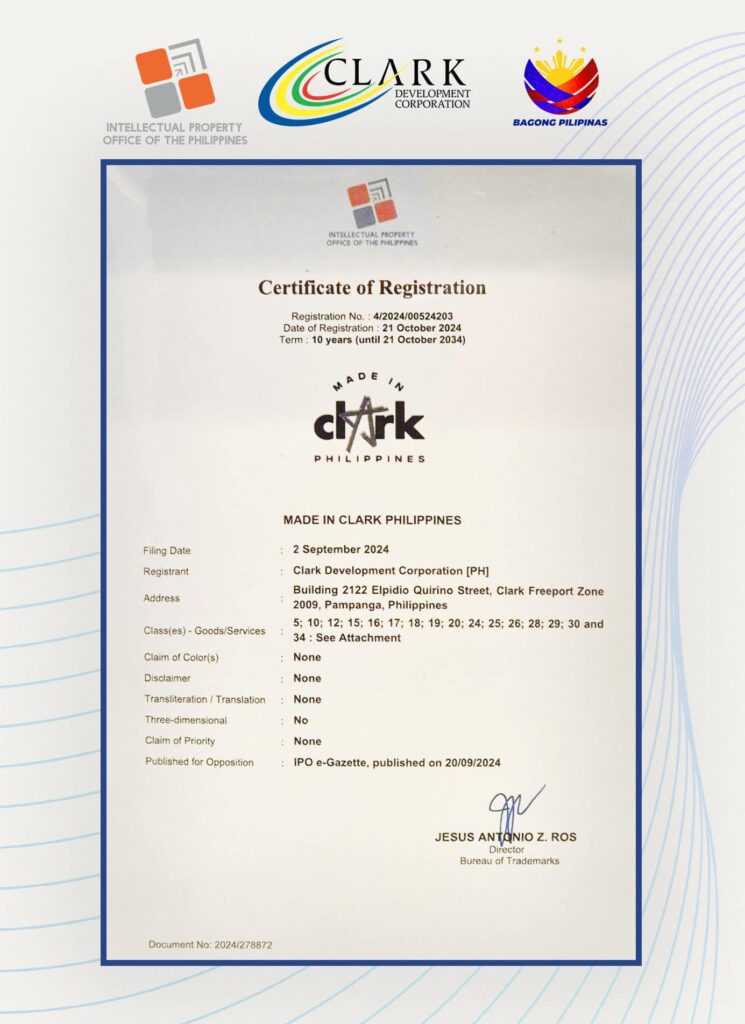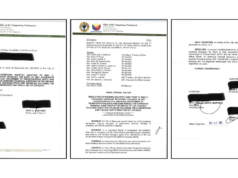
TAGUIG CITY – The “Made in Clark Philippines” certification mark has secured official registration with the Intellectual Property Office of the Philippines (IPOPHL), solidifying Clark Freeport’s brand identity in the global market.
Clark Development Corp. president and CEO Atty. Agnes VST Devanadera received the certificate of registration from IPOPHL deputy director general for operations Atty. Ann Claire Cabochan, on Nov. 15 at the McKinley Hill Town Center, Fort Bonifacio.
“And so, we were saying that when you are given the brand of Made in Clark Philippines, we have to make sure that you are up to quality. Made in Clark Philippines stands for excellence, and by upholding this standard, we elevate not just Clark, but the entire Philippines,” Devanadera said.
Registered under IPOPHL’s 2023 Revised Trademark Regulations, the certification ensures the authenticity and quality of products manufactured within the Clark Freeport. The registration, effective as of Oct. 21, 2024, will be valid for 10 years until 2034.
This initiative comes at a time when Clark’s export performance has reached $5.1 billion in 2023, a 9% growth from 2022, underscoring the potential for the mark to enhance the freeport’s positioning in international trade. The registration with IPOPHL bolsters the integrity of Clark-based products, with the freeport’s locators expecting the certification to boost consumer confidence and open up new international market opportunities.

CDC-recognized locators will be granted the Made in Clark Philippines certification mark for products manufactured within the zone. With 1,155 companies across various industries, including aviation, tourism, and manufacturing, CDC encourages its locators to adopt the certification mark to highlight the quality of Clark-made goods.
It can be recalled that on Sept. 4, 2024, Devanadera formally submitted the application during the 1st Clark Business Interdependence Conference (BIC), handing it to Cabochan.
Certification marks, unlike regular trademarks, guarantee specific qualities such as geographic origin and manufacturing standards. According to the IPOPHL website, multiple businesses that meet the certifying body’s criteria can use certification marks, whereas standard trademarks are exclusive to a single company. CDC-PR




